News Based on facts, either observed and verified directly by the reporter, or reported and verified from knowledgeable sources.
High-profile cases bring new attention to sexual assault
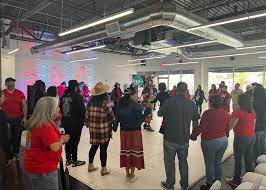 The Law Vegas Indian Center hosted a rally on Feb. 25 with speakers, entertainment, and an Indian taco sale fundraiser, with proceeds going toward survivors of sexual assault. Here, some of the 70-something participants hold hands for a healing round dance. (Photo by Davis Thunderhawk, courtesy of Las Vegas Indian Center)
The Law Vegas Indian Center hosted a rally on Feb. 25 with speakers, entertainment, and an Indian taco sale fundraiser, with proceeds going toward survivors of sexual assault. Here, some of the 70-something participants hold hands for a healing round dance. (Photo by Davis Thunderhawk, courtesy of Las Vegas Indian Center)
Nathan Chasing Horse, Bunky Echo-Hawk among those facing recent allegations
TRIGGER WARNING: This story contains material regarding sexual assault and sexual misconduct allegations involving a minor. The national StrongHearts Native Helpline is available 24/7 at 1-844-762-8483.
Allison Renville drove from South Dakota to Nevada to attend a “Reclaim Your Power” rally Feb. 25 to raise awareness about missing and murdered Indigenous women and to show support for survivors of sexual assault. The event was hosted by the Las Vegas Indian Center.
Renville also brought her petition with her – the one with 1,300 signatures calling for former “Dances with Wolves” actor Nathan Chasing Horse, 46, to remain behind bars on charges of sexual assault of children and child pornography.
“I know that there’s people that support the idea of him being locked up for as long as they can because he’s a danger to the community,” said activist and media consultant Renville, who is Sisseton and Hunkpapa.
“So it (the petition) is to give people an opportunity to speak out, and to see that they’re part of a larger group.”
The signatures may be a reaction to the fact that Native people are 2.5 times more likely to experience sexual assault crimes compared to all other races, and one in three Native women reports having been raped during her lifetime.
The consequences for victim-survivors include depression, anxiety, PTSD, suicidal thoughts, negative health behaviors and long-term health problems, according to the Centers for Disease Control and Prevention.
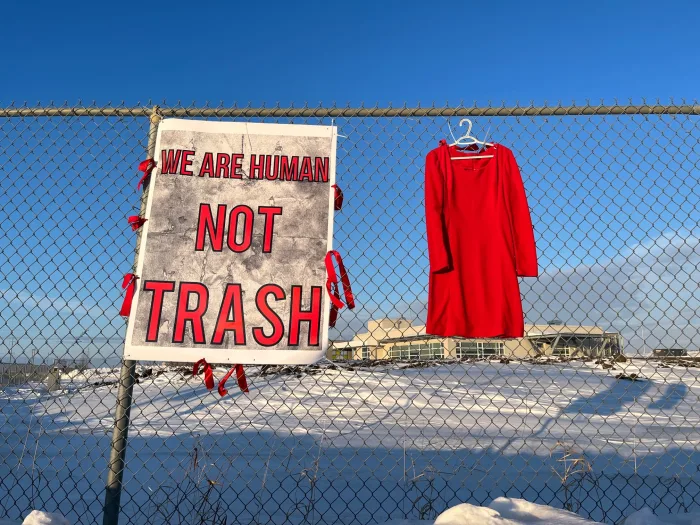
Chasing Horse, Sicangu Sioux, is the second high-profile Indigenous man to face allegations of sexual assault recently and the third case involving the Native community.
He was arrested in Las Vegas on Jan. 31. Court documents say the alleged crimes date back some 20 years and span South Dakota, Montana and Nevada. Canadian First Nation Tsuut’ina police told APTN that Chasing Horse is also facing one charge in British Columbia and a potential charge in Alberta.
Authorities describe Chasing Horse in court documents as the leader of a cult known as The Circle who took underage “wives.” They allege that at the time of his arrest he was grooming young girls to replace his older wives.
Despite the serious allegations, Chasing Horse has support on his side. A dozen or so of his family members and followers have held protests outside courtrooms and attended court proceedings.
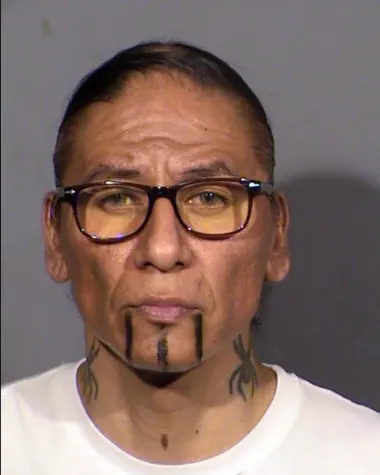
Renville said Chasing Horse has represented himself as a medicine man who can communicate with higher powers. She said some of his followers have threatened his opponents with spiritual retaliation.
“What I would like people to know is that Nathan isn’t a proper representation of our culture, of our ceremonies, or our Lakota way of life,” she said.
Her hope is that communities will come forward to find “nascent Chasing Horses … that perhaps could be perpetuating this (spiritual) abuse… and of course, work towards remedying some of these situations.”
Renville wants the Lakota to be able to “pray or go through whatever ceremonies they need to without fear, without distrust of our medicine people.”
Other cases
Other high-profile cases that involve Indigenous youth or women include an Oklahoma artist and a Hollywood actor.
In Oklahoma, well-known Native artist Walter “Bunky” Echo-Hawk is heading to trial probably this fall over allegations of lewd behavior with a child under 16 years and felony possession of juvenile pornography. Echo-Hawk has pleaded not guilty.
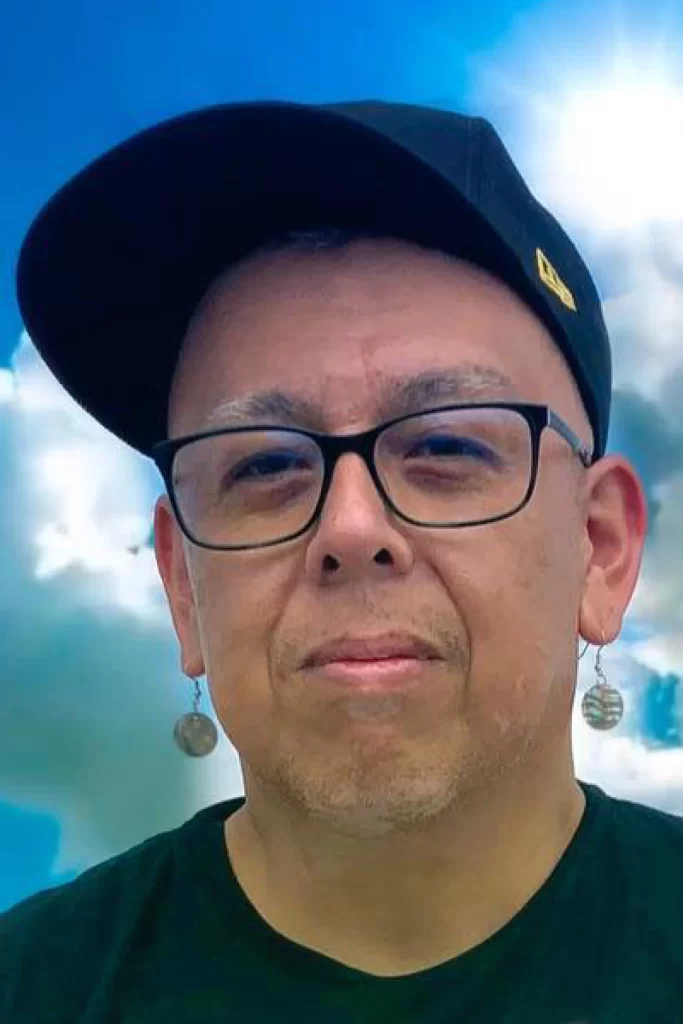
Echo-Hawk, Pawnee, is known in Indian Country for his work relating to Native culture and hip-hop.
Actor Ezra Miller, who is non-Native, is facing serious allegations involving 18-year-old Native activist Tokata Iron Eyes, Lakota.
The parents of Iron Eyes filed a protection order in Massachusetts in 2022 against Miller, accusing the actor of grooming and inappropriate behavior with her as a minor from the age of 12. Tokata Iron Eyes has disputed that.
Miller, perhaps best known for his role in “The Flash,” announced in August that he was seeking treatment for “complex mental health issues” after being arrested in Vermont and pleading no contest to a disorderly conduct charge in Hawaii.
Chasing Horse was banned from the Fort Peck Reservation in Montana in 2015 amid allegations of human trafficking, drug dealing, spiritual abuse and intimidation of tribal citizens.
The FBI accuses him in court documents of sexually abusing a girl from 2012 through 2021, beginning when she was 14. The FBI told the court that investigators found videos of him having sexual intercourse with underage girls.
In addition, charges against Chasing Horse include sexual assault, sex trafficking of an adult, child abuse or neglect, kidnapping of a minor, and two counts related to unlawful possession of a bird of prey or parts. Chasing Horse has pleaded not guilty to all the charges.
“A 19-count indictment and charges (against Chasing Horse) — that happening is not everyday life for Native people, because of jurisdiction, because of the lack of prosecution,” said Rebecca Balog, a Mohawk and Lakota descendant who is a program development coordinator for Mending the Sacred Hoop, which works to end violence against women and children.
Investigations hampered
The Justice Department’s Office for Victims of Crime calls investigation and prosecution of child sexual abuse cases in Indian Country a “jurisdictional maze.”
The office said investigation of a crime committed in Indian Country can be run by city, county, tribal, state or federal law enforcement. Which agency investigates depends on the location and type of crime, race of the perpetrator and the victim-survivor, and laws governing jurisdiction. Likewise, prosecution may be carried out by state, federal and/or tribal courts.
A University of Texas study by professors Richard D. Hartley, Alexander Testa, and Erika Martinez shows that because the federal government has jurisdiction on reservations over some crimes that otherwise would go to state prosecution, Native people are overrepresented among federally charged sex offenders.
To achieve public safety in Indian County, “tribal justice systems must be allowed to flourish,” according to a 2013 report from the federal Indian Law and Order Commission.
“Tribal authority should be restored to Tribal governments when they request it, and the Federal government, in particular, needs to take a back seat in Indian country, enforcing only those crimes that it would otherwise enforce on or off reservation,” according to the report, ”A Roadmap for Making Native America Safer.”
“Ultimately, the imposition of (a) non-Indian criminal justice institution in Indian country exacts a terrible price…” including allowing repeat offenders to go unpunished, the commission said in the report, which was updated in 2015.
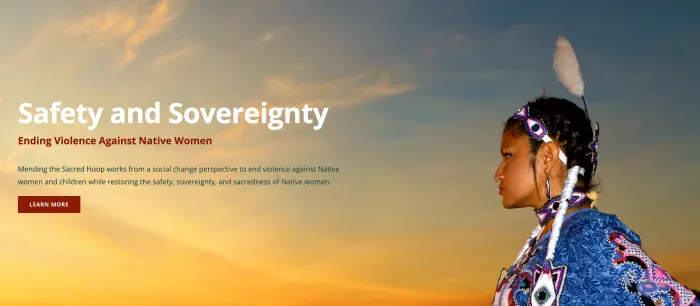
Community justice
Community justice is also needed, said Cinnamon Bankey, Mendota Mdewakanton Dakota, who is executive director of Mending the Sacred Hoop.
An important factor in community justice, Bankey said, is ”talking to our family members, our aunties, our sons or brothers or sisters — because this violence is not gender specific — but starting at the family table, then going through the community all the way up to tribal council, and constitution and bylaws of accountability, or whatever that looks like within the jurisdiction, but then also that community, (saying), ‘We won’t allow this here.’”
Traditionally, she said, tribes exercised justice through shunning, banishment, and traditional restoration and healing.
“All of that was back in the day,” she said. “This is not new to Native people. This is ancestral knowledge.”
Safety also requires vigilance on the part of parents, Balog said.
“COVID forced offenders to move to the internet to groom children,” Balog said. “While we’re doing this work to end domestic and sexual violence and sex trafficking, we need to be present in real life, and digitally, because it’s happening more and more, post-COVID. “
Hartley, the professor, said one bright spot is the federal government’s success rate of 96 to 97 percent in cases it takes to court. Also, penalties for multiple crimes can add up. For instance, he said, in 2009, the average sentence for sex abuse offenses was almost eight years. For child pornography offenses, it was closer to 10 years.
“But if there’s multiple victims, in multiple states, across time, the feds can charge multiple counts. And depending on the judge, the judge could even say that sentences for those cases are going to run consecutively, not concurrently,” Hartley said. “So, yeah, they can really put somebody away for a long time.”
Balog said she hopes Chasing Horse’s case becomes “like a beacon of light in the fog for people that don’t want to come forward, that they’re seeing that justice is happening.”
